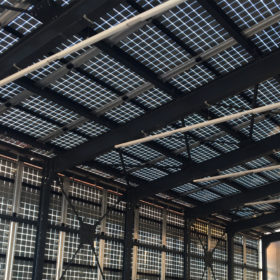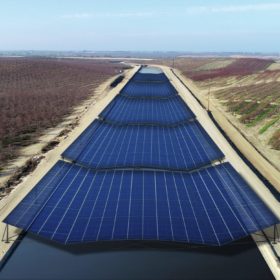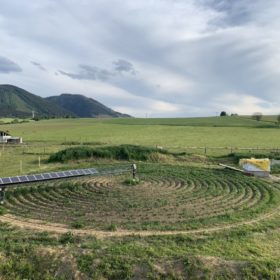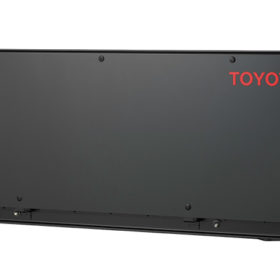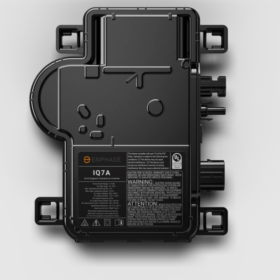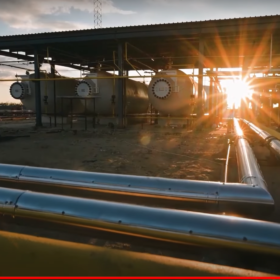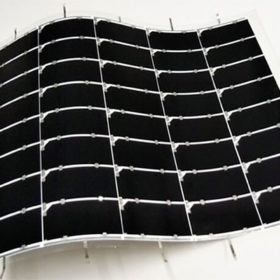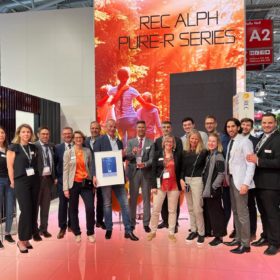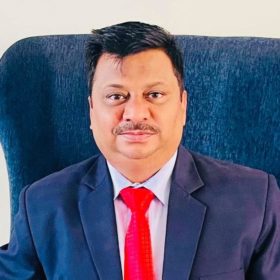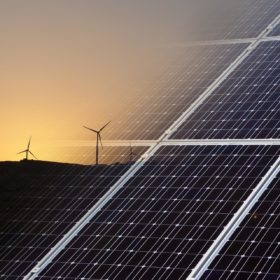New photovoltaic in-roof system from Switzerland
Swiss module manufacturer Megasol has unveiled a novel rooftop PV system in two variants — full-black and translucent. The installation consists of vertical supports, a ridge profile, and solar modules.
The long read: Canal-top solar solutions
Climate change is exacerbating water scarcity in many parts of the world, and while renewable energy is a long-term solution, in many cases it is a short-term solution, too. One such case in the energy-water nexus is that of canal-top solar, which was pioneered in India a decade ago, when the first canal-top solar array was installed in Gujarat. And new findings from the University of California and the resulting Project Nexus are now shining attention on a symbiotic application: saving water, while generating solar energy, without occupying arable land.
Solar arm for agrivoltaic applications
A Slovakian startup has developed a photovoltaic-integrated arm that provides off-grid power for weeding and other small agricultural applications. In its largest configuration, the system is 18 meters long, has a capacity of 2.4 kW, and is able to cover a cultivated area of 994 m².
Toyota unveils 8.7 kWh battery for residential applications
The battery has a rated output of 5.5 kW and can be installed in outdoor environments. It is equipped with a hybrid power conditioner, a DC-to-DC converter, and a vehicle power supply adapter with a maximum output of 1.1 kWh.
Technologies revolutionizing solar energy
Advanced solar panels, inverters, batteries and plant monitoring technologies are revolutionizing the solar sector.
Acme to invest in green hydrogen, ammonia plant with captive solar in Karnataka
Renewables developer Acme Cleantech Solutions has signed a deal with the Karnataka government to invest INR 52,000 crore ($6.7 billion) in a new plant capable of producing 1.2 million tons of green hydrogen and ammonia per year, co-located with a captive solar plant.
Sharp achieves conversion efficiency of 32.65% in flexible, lightweight solar module
The new prototype uses a triple-junction compound design, which sandwiches the solar cell between layers of film. The module is expected to be used in a variety of vehicles, an application that demands high efficiency and lightweight construction. Its conversion efficiency bests that of a similar Sharp module developed in 2016, which notched an efficiency of 31.17%, at the time a world record.
REC: “Our future is in HJT”
While many solar manufacturers are as yet undecided about which PV cell technology they will choose for their next high efficiency expansions, for Singapore-based REC, the future is HJT. pv magazine spoke to Cemil Seber, the managing director at REC Solar EMEA GmbH at the Intersolar Europe 2022 trade show, to dig deeper into these manufacturing plans.
GreenZo to offer green hydrogen solutions from electrolysis to storage
The Delhi-based renewable project consultant aims to expand electrolyzer production capacity to 1 GW after its initial 250 MW is operational. It is also looking at offering turnkey solutions for green hydrogen plants and the production of high-pressure tanks and cryogenic vessels for hydrogen storage.
Solar-plus-storage vs. wind-plus-storage
US scientists have come up with an analytical way to evaluate the costs and net value of different configurations of large-scale wind and solar projects paired with battery storage. They identified six trends in the US electricity market and found that their framework is aligned with current commercial practices.
